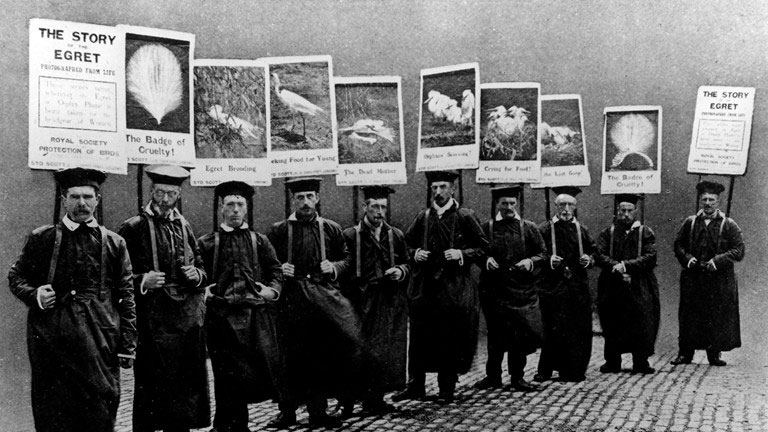RSPB – Guest blog by Harry Huyton
The RSPB was formed to counter the barbarous trade in plumes for women’s hats, a fashion responsible for the destruction of many thousands of egrets, birds of paradise and other species whose plumes had become fashionable in the late Victorian era. Today RSPB looks after other wildlife and their habitats.

To save the wonders of nature, we must fight climate change
Cast your mind back to biology lessons at school. No, not that one! The one where you learnt about food webs and how different species depend on each other. Predators need prey, flowers need pollinators, trees need birds… Some species will even create habitats for others. Beavers, for example, engineer ponds and wetlands that help fish, frogs and even otters thrive. In this way, all of nature is interconnected in a vast and intricate web that we will only ever partially understand.
For millennia, humans have degraded this web, principally through unsustainable farming, fishing and hunting practices. As a result, the natural world of the 21st Century is one that is under deep stress. The global species extinction rate is as much as 1,000 times over the historic background rate, whilst here in the UK, the RSPB and a other nature conservation organisations recently published the State of Nature, which found that 60% of species we monitor are in decline.
It is in this beleaguered, tragic state that the natural world must face man-made climate change. Unlike conventional drivers of decline, however, which usually threaten individual species or habitats, climate change threatens to throw the whole web of life into chaos.
A stark example is what is happening to the world’s coral reefs. Recently, I was lucky enough to honeymoon in Thailand, where I went diving in the Andaman Sea. Rest assured that leisure flights are an extremely rare occurrence for me given their carbon emissions! I had dived here before, over ten years ago, and the colour and diversity of the coral and fish I encountered was mind-blowing. This time it was spectacular again, but the hard coral was almost universally dead – bleached by high sea temperatures. On our current climate change trajectory, many experts do not expect corals such of these to survive the end of the century.
Back in the UK, climate change has been linked to some of the declines we’ve seen in seabirds up and down the coast. Seabirds are at the top of a food chain that has been disrupted by a massive drop in plankton abundance because of sea temperature rises. RSPB research has also found that the turkey-sized Capercaillie, found in ever-shrinking parts of Scotland, fares poorly when there is high rainfall in Spring, whilst Golden Plover chicks are threatened with starvation as a result of the impacts of climate change on daddy long-leg populations in the uplands.
These examples add up to extinctions at a massive scale. One review in Nature suggested that up to a third of species could be committed to extinction by 2050 as a result of climate change.
What this comes down to is simple. If we want to save the wonders of nature for future generations, then we must avoid dangerous levels of climate change. This will cost us, and it will require us to change how we live, but the alternative is to risk shattering the web of life upon which we all depend.
Harry Huyton -Head of Climate Change Policy and Campaigns – RSPB




No comments yet